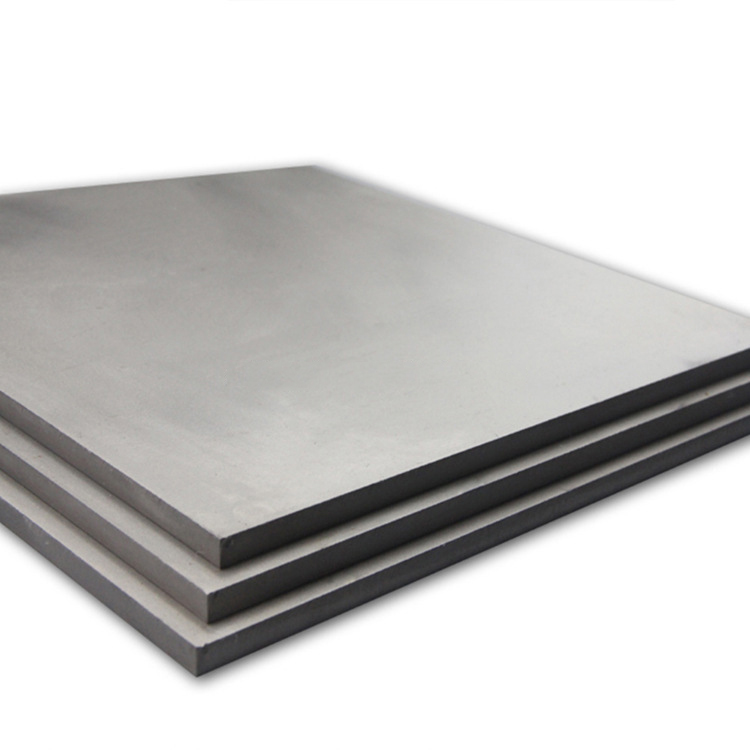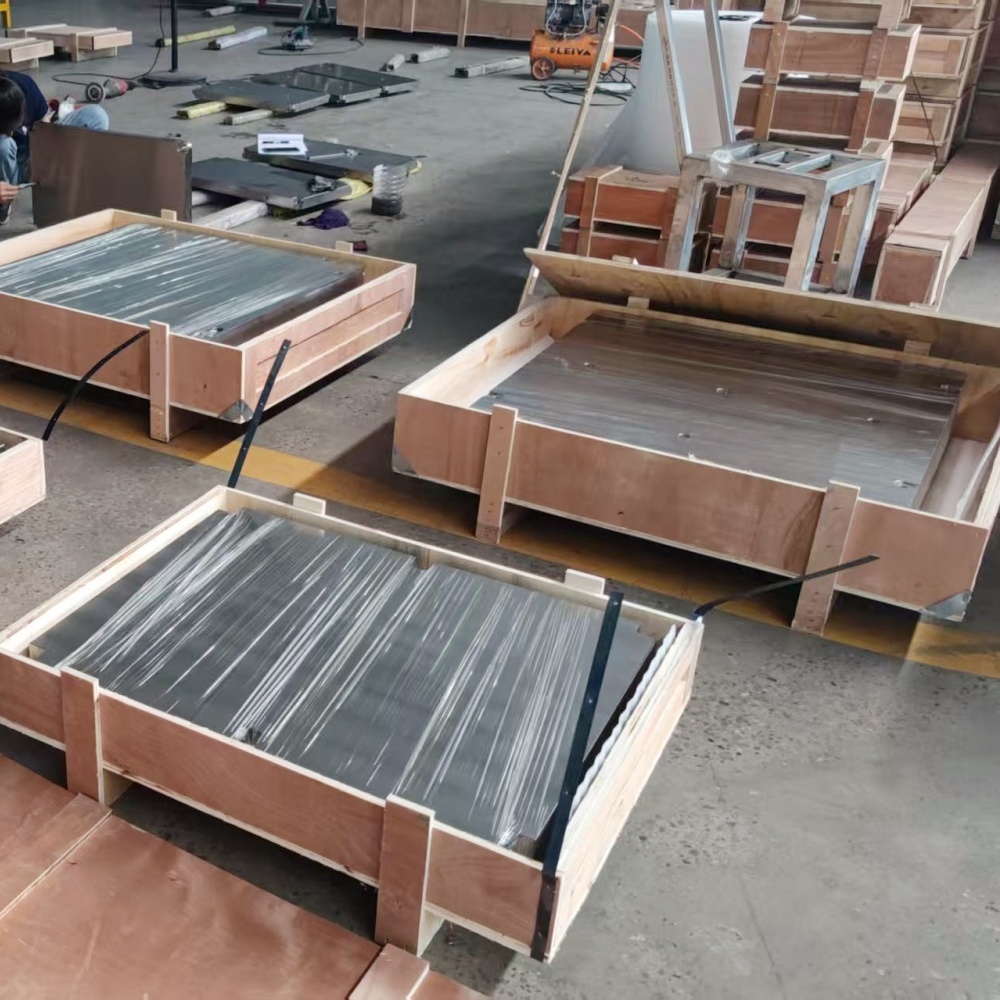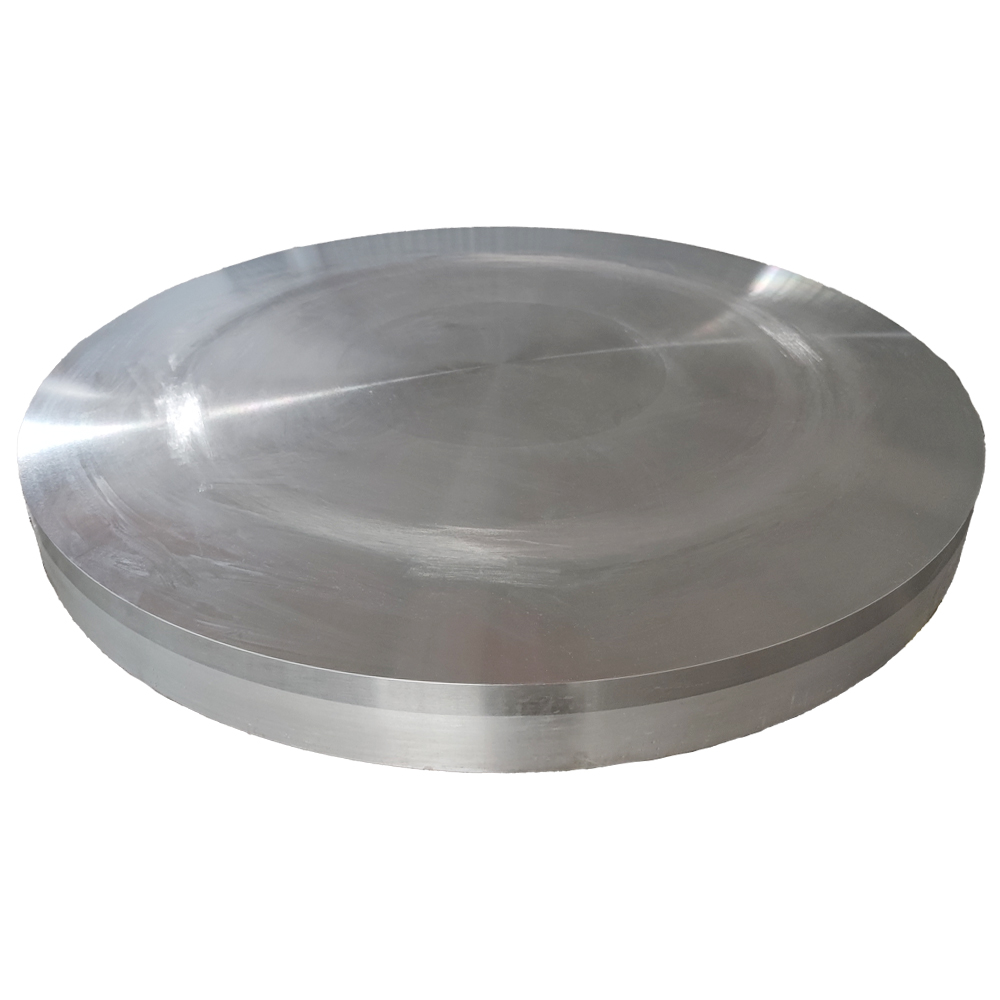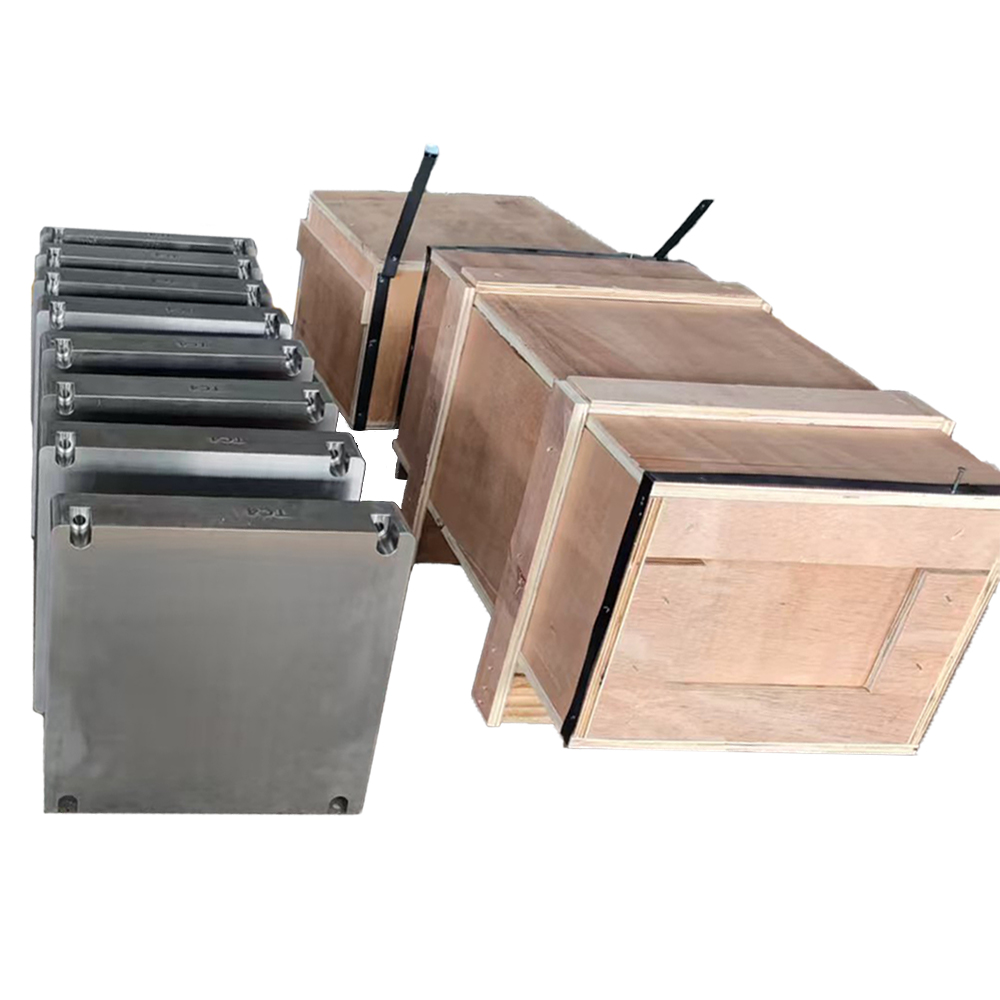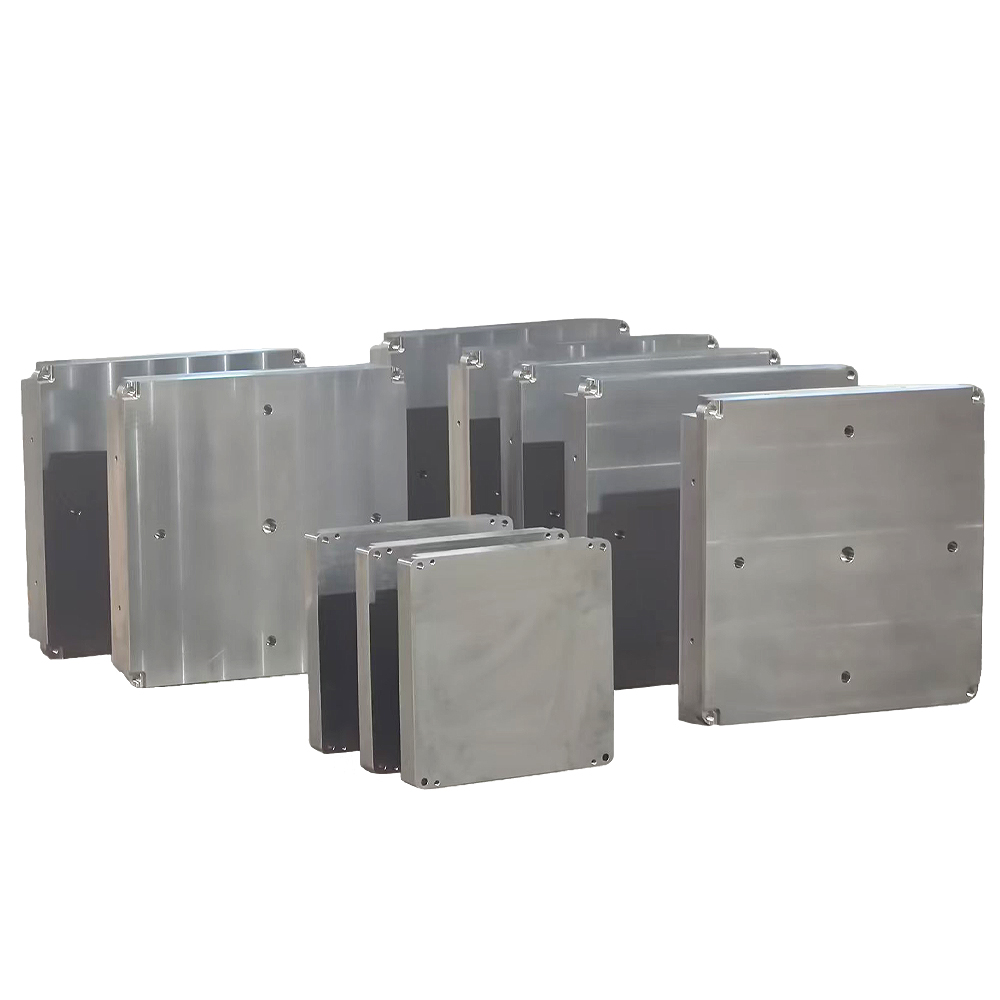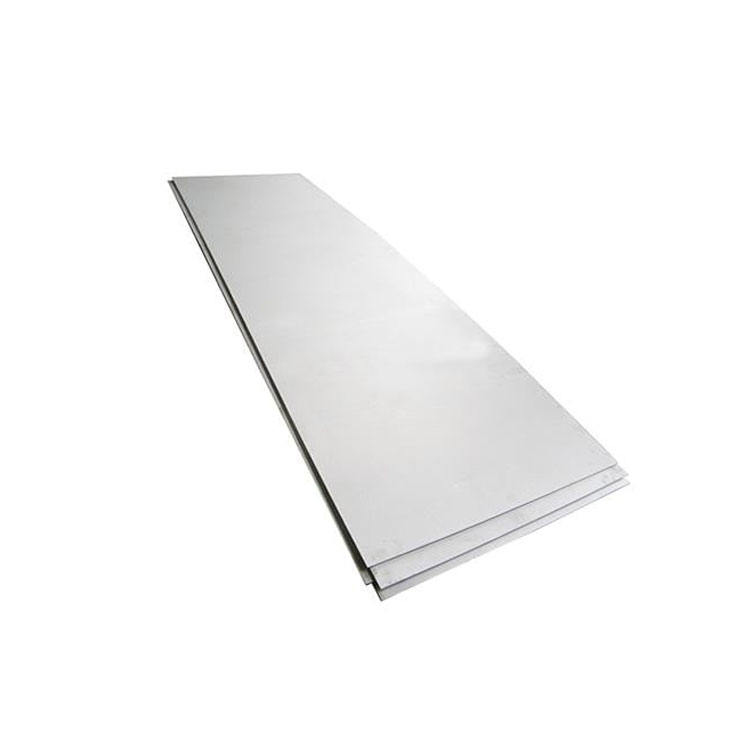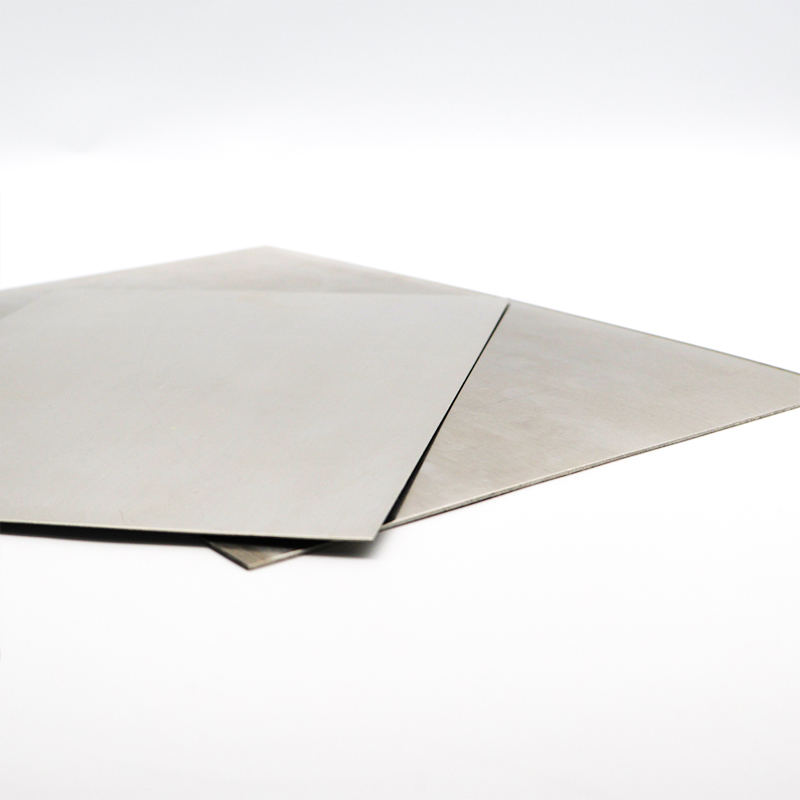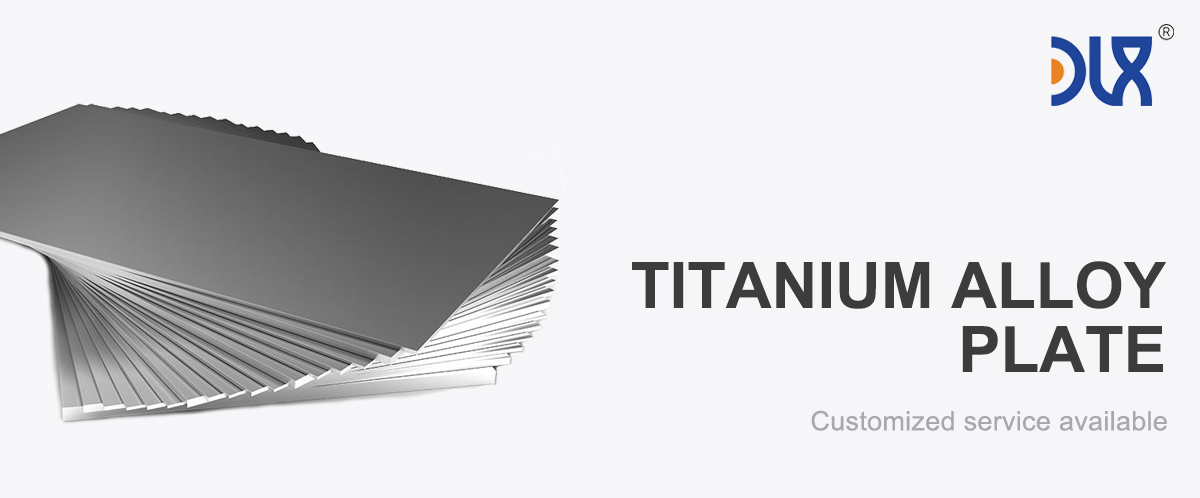
Our ASTM B265 Titanium Plate s are purpose-built for industrial heat exchangers, delivering top-tier performance in demanding environments. Crafted from commercially pure titanium (Grade 2) and select alloys like Grade 12, these plates offer exceptional corrosion resistance, high thermal conductivity, and durability. They’re designed to handle the intense conditions of heat transfer systems, from chemical plants to power generation facilities. With titanium’s low density (4.5 g/cm³) and ability to resist aggressive media like seawater and acids, our plates ensure long-lasting, efficient operation.
Each plate meets ASTM B265 standards, guaranteeing quality and consistency for industrial applications. Available in customizable thicknesses (from 0.5 mm to 100 mm) and sizes, they’re tailored to fit specific heat exchanger designs, whether plate-and-frame, shell-and-tube, or compact systems. Our manufacturing process uses advanced techniques like precision rolling and vacuum arc melting to produce defect-free plates with uniform grain structures. This ensures optimal heat transfer and structural integrity, even under high pressure or temperature fluctuations.
We also prioritize sustainability, using recyclable titanium and energy-efficient production methods. Our plates are lightweight yet robust, reducing material costs and easing installation. For industries needing reliable, low-maintenance solutions, our titanium plates are a go-to choice, balancing performance with cost-effectiveness.
For more details, pls directly contact us.
The industrial heat exchanger market is booming, driven by growing energy demands and stricter environmental regulations. Valued at USD 16.8 billion in 2024, the market is expected to grow at a CAGR of 5.1% through 2032, fueled by demand in chemical processing, oil and gas, and power generation. Titanium’s role is critical, as industries seek materials that withstand corrosive fluids and extreme temperatures while boosting efficiency. Titanium plates, particularly Grade 2 and Grade 12, are prized for their resistance to pitting and crevice corrosion, making them ideal for heat exchangers in harsh settings.
Trends like decarbonization and energy efficiency are pushing innovation. Heat exchangers are evolving to handle alternative energy sources, like geothermal and hydrogen systems, where titanium’s durability shines. Additive manufacturing is also gaining traction, allowing for complex plate geometries that enhance heat transfer efficiency. However, challenges like titanium’s high initial cost and machining complexity remain. Still, its long-term savings—through reduced maintenance and downtime—make it a smart investment.
Global supply chain dynamics, particularly for titanium sponge, influence market stability. As a strategic material, titanium availability can be affected by geopolitical factors, but our robust supply chain ensures consistent delivery. The rise of Industry 4.0, with smart sensors and predictive maintenance, is also shaping the market, as heat exchangers integrate with IoT for real-time performance monitoring. Our titanium plates are designed to meet these evolving needs, supporting next-gen industrial systems.
| Titanium (Ti) | Aluminum (Al) | Vanadium (V) | Tin (Sn) | |
| Ti-6Al-4V | Rest | 5.5%-6.8% | 3.5%-4.5% | |
| Ti-5Al-2.5Sn | Rest | 4.5%-5.5% | 2.0%-3.0% |
Physical Properties
| Density | 4.4-4.5g/cm³ |
| Melting Point | 1660°C |
| Coefficient of Thermal Expansion | 8-10×10⁻⁶/K (20°C-500°C) |
| Thermal Conductivity | 6-22 W/(m·K) (depending on alloy grade) |
| Electrical Resistivity | 0.14-0.17 μΩ·m |
| Tensile Strength | 600-1200 MPa (depending on alloy grade) |
| Yield Strength | 480-1100 MPa |
| Elongation at Break | 10%-25% |
| Hardness | 200-400 HB |

For more details, pls directly contact us.
Our ASTM B265 titanium plates are versatile, serving a range of heat exchanger applications across industries:
-
Chemical Processing: Resistant to acids, alkalis, and chlorides, our plates are used in heat exchangers for chemical reactors and distillation units, ensuring reliability in corrosive environments.
-
Oil and Gas: In refineries and offshore platforms, our plates handle seawater and sour gas, extending equipment life in shell-and-tube heat exchangers.
-
Power Generation: From nuclear to fossil fuel plants, our plates withstand high temperatures and pressures in steam condensers and cooling systems.
-
Marine Applications: Seawater-resistant Grade 2 titanium plates are ideal for marine heat exchangers, preventing corrosion in desalination plants and shipboard systems.
-
HVAC Systems: Our plates enhance efficiency in plate-and-frame heat exchangers for industrial HVAC, reducing energy costs.
-
Renewable Energy: Used in geothermal and solar thermal systems, our plates support sustainable energy production with high thermal conductivity.
-
Food and Beverage: Biocompatible and non-toxic, our plates are safe for heat exchangers in food processing, ensuring hygiene and durability.
-
Pharmaceuticals: Our plates meet stringent cleanliness standards for heat exchangers in drug manufacturing, resisting aggressive cleaning agents.
Comparison Parameters Table
|
Parameter |
Our Titanium Plates |
Competitor A |
Competitor B |
|---|---|---|---|
|
Primary Material |
CP Titanium (Grade 2), Grade 12 |
CP Titanium (Grade 2) |
Stainless Steel |
|
Corrosion Resistance |
Excellent (seawater, acids, chlorides) |
Good |
Moderate (prone to pitting) |
|
Thermal Conductivity |
16 W/m·K (Grade 2) |
15 W/m·K |
14 W/m·K |
|
Tensile Strength |
550 MPa (Grade 2), 700 MPa (Grade 12) |
500 MPa |
600 MPa |
|
Density |
4.5 g/cm³ |
4.5 g/cm³ |
7.8 g/cm³ |
|
Temperature Resistance |
Up to 400°C (Grade 2), 600°C (Grade 12) |
Up to 350°C |
Up to 800°C |
|
Customization Options |
High (sizes, thicknesses, finishes) |
Moderate |
Limited |
|
Standards Compliance |
ASTM B265 |
ASTM B265 |
ASME SA240 |
Company Advantages
Our ASTM B265 titanium plates set us apart in the heat exchanger market. We leverage cutting-edge manufacturing, like vacuum arc melting and precision rolling, to produce plates with superior grain structure and zero defects. This ensures optimal heat transfer and long-term reliability, even in the most corrosive environments. Unlike others, we offer extensive customization—whether it’s unique sizes, thicknesses, or surface treatments, we tailor our plates to your exact specs.
Our supply chain is rock-solid, securing high-quality titanium sponge despite global market fluctuations. This means you get consistent delivery, no matter the project scale. We’re also ahead of the curve with additive manufacturing, enabling complex plate designs that boost efficiency and reduce waste. Sustainability is a priority—our plates are fully recyclable, and our production minimizes energy use, aligning with industry trends toward greener operations.
With decades of experience, we’ve fine-tuned our processes to deliver cost-effective solutions without compromising quality. Our R&D team is pushing boundaries, developing alloys with enhanced thermal and corrosion properties for next-gen heat exchangers. Global service centers keep inventory ready, slashing lead times. Plus, our plates offer long-term savings through reduced maintenance and downtime, making us the smart choice for industries worldwide.
Why Choose Our Titanium Plates?
Our ASTM B265 titanium plates are built to power industrial heat exchangers with unmatched efficiency and durability. From chemical plants to offshore rigs, they deliver corrosion resistance, thermal performance, and longevity that keep systems running smoothly. With advanced manufacturing, a focus on sustainability, and a customer-centric approach, we’re here to support your industrial projects with reliable, high-quality titanium plates.
For more details, pls directly contact us.
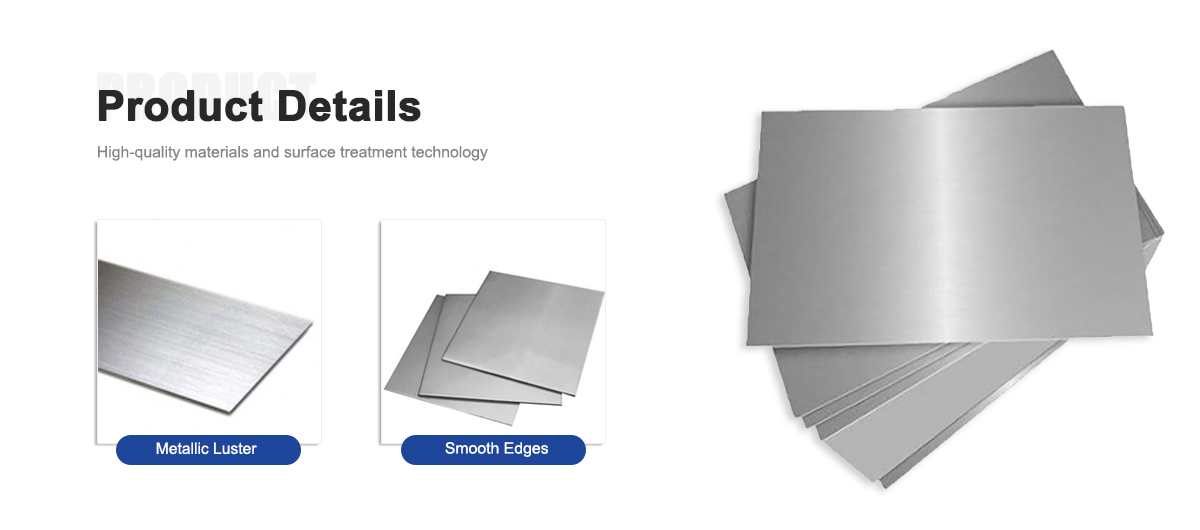
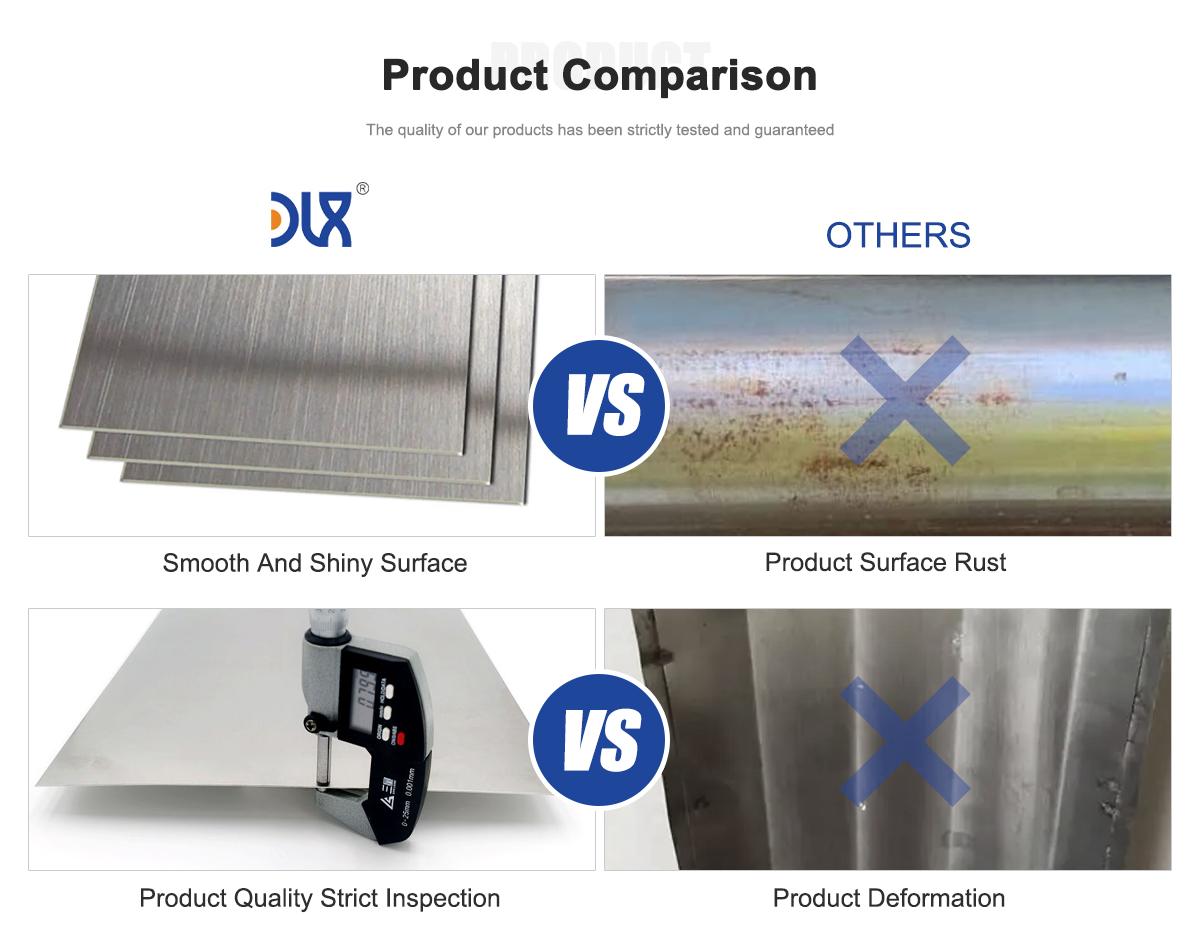
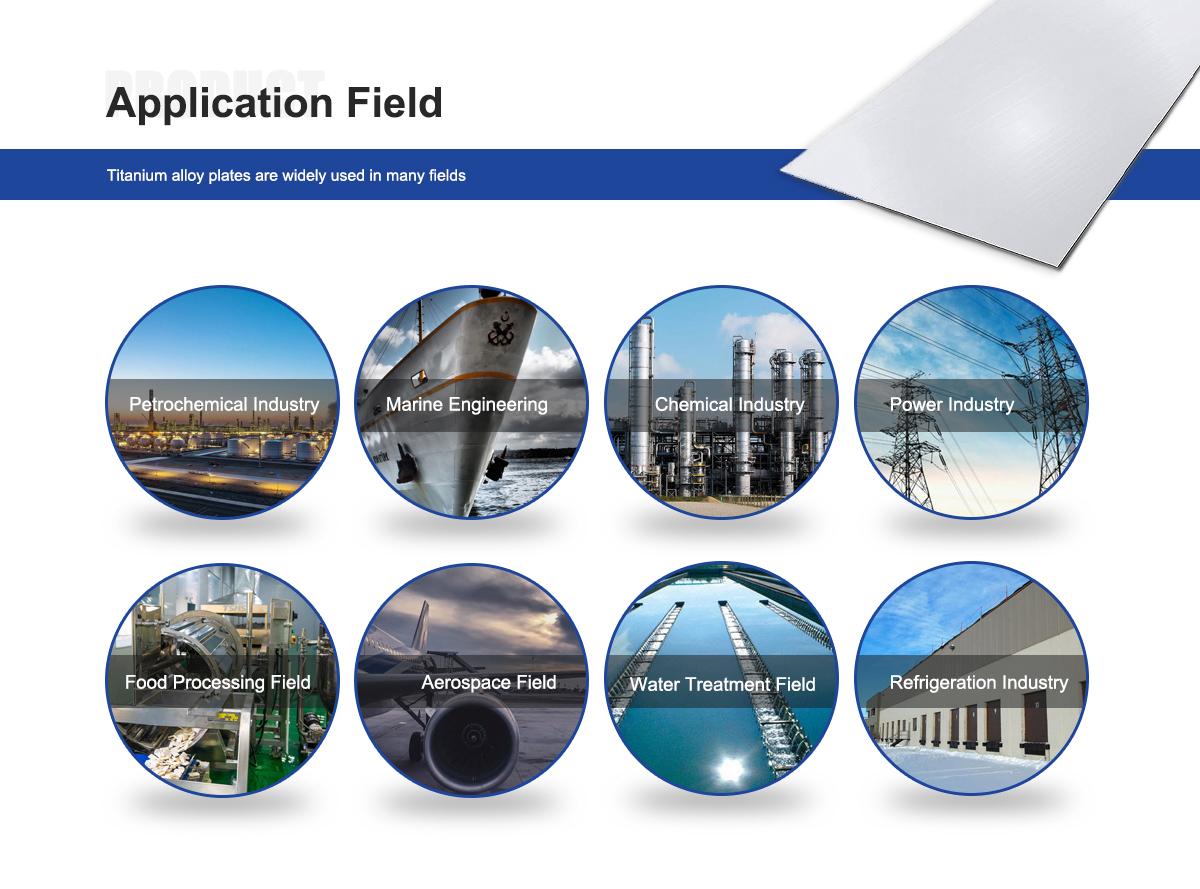
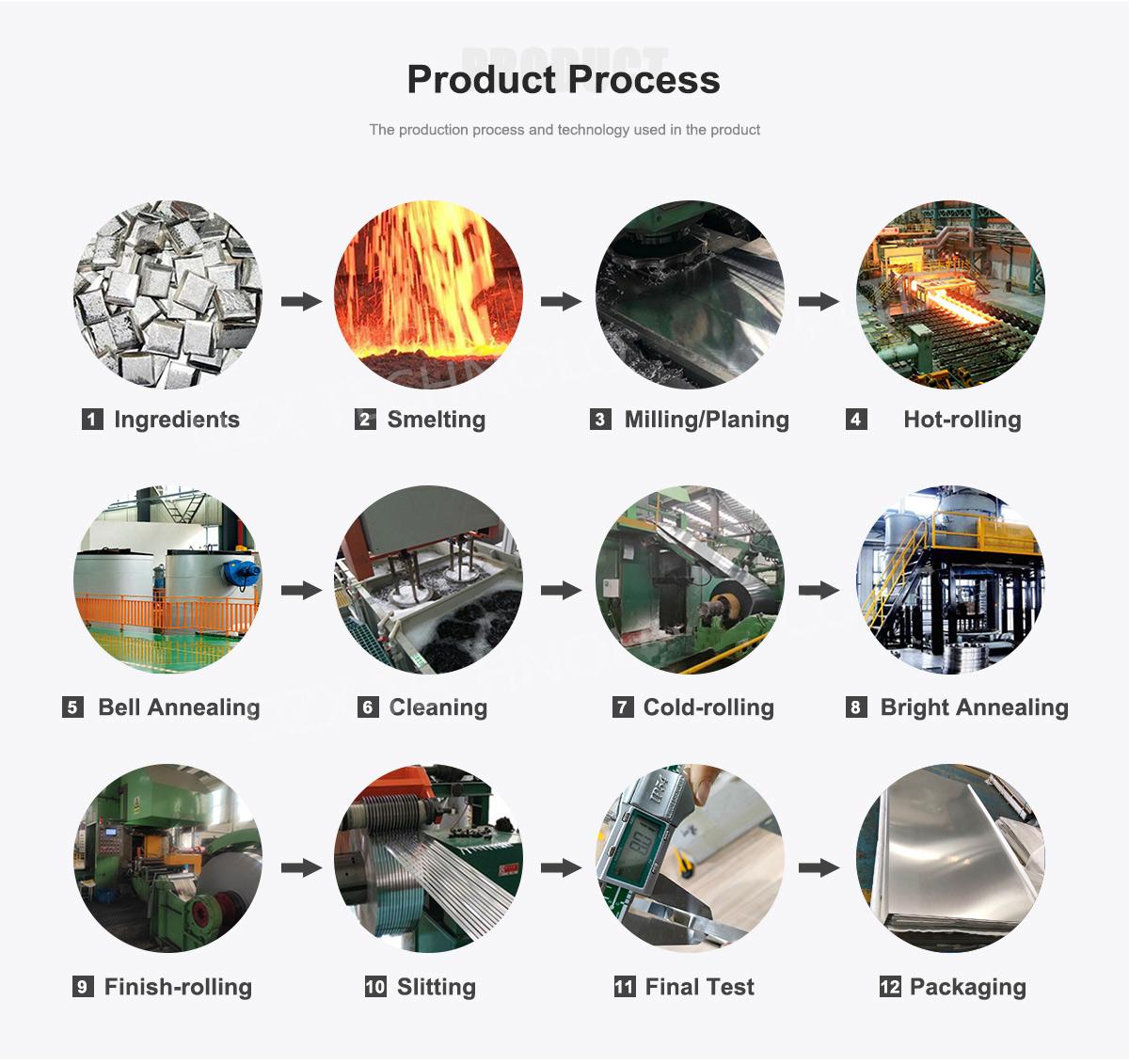
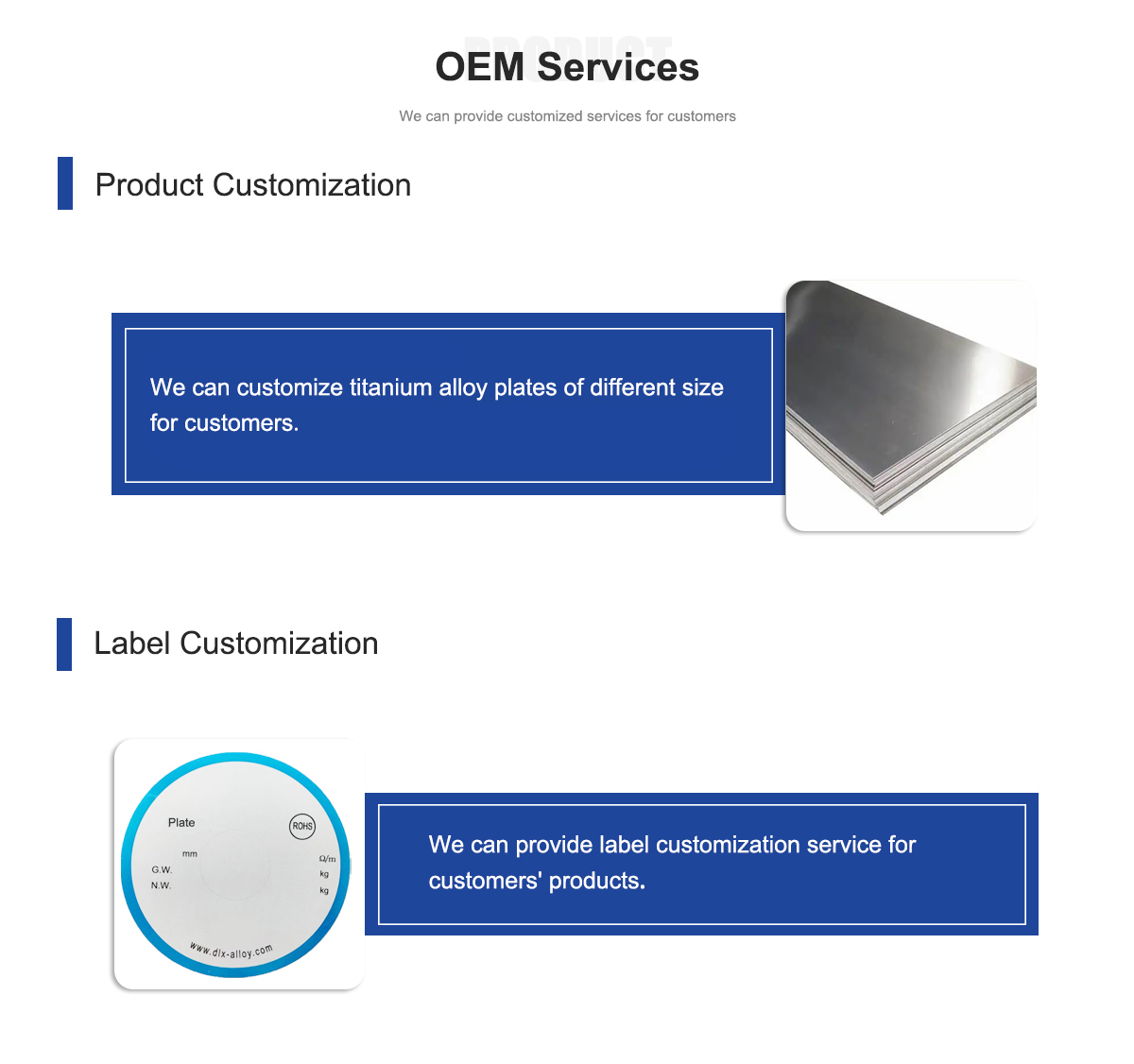
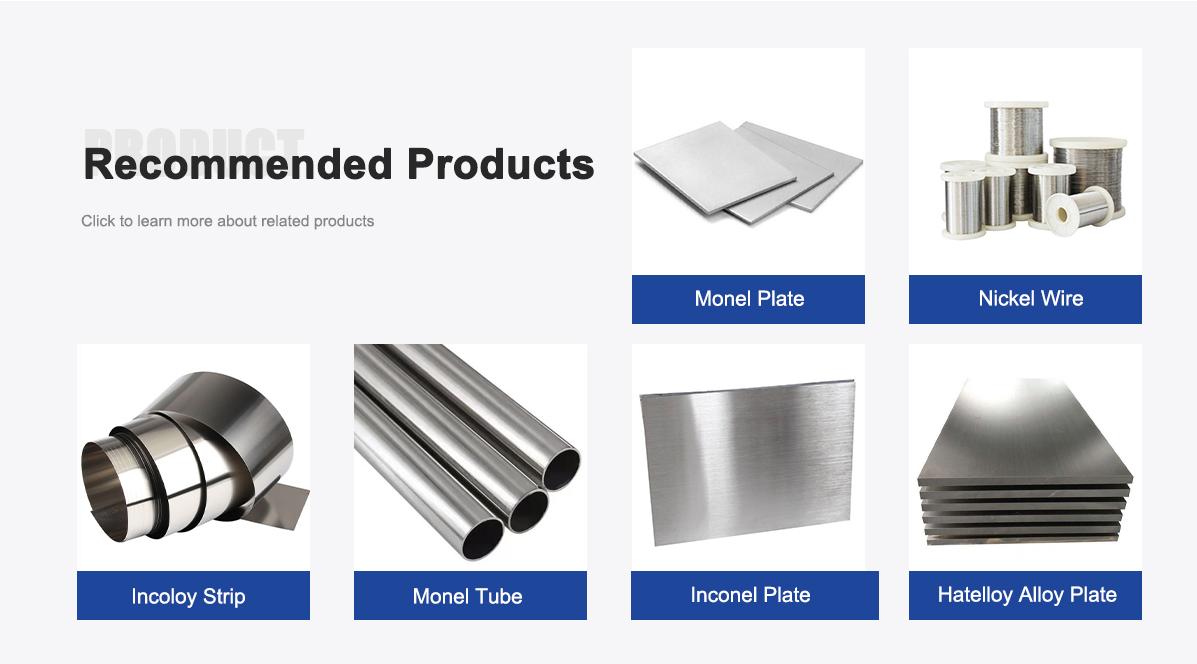
About Us:
Our 12,000㎡ factory is equipped with complete capabilities for research, production, testing, and packaging. We strictly adhere to ISO 9001 standards in our production processes, with an annual output of 1,200 tons. This ensures that we meet both quantity and quality demands. Furthermore, all products undergo rigorous simulated environment testing including high temperature, high pressure, and corrosion tests before being dispatched, ensuring they meet customer specifications.
For all our clients, we offer timely and multilingual after-sales support and technical consulting, helping you resolve any issues swiftly and efficiently.
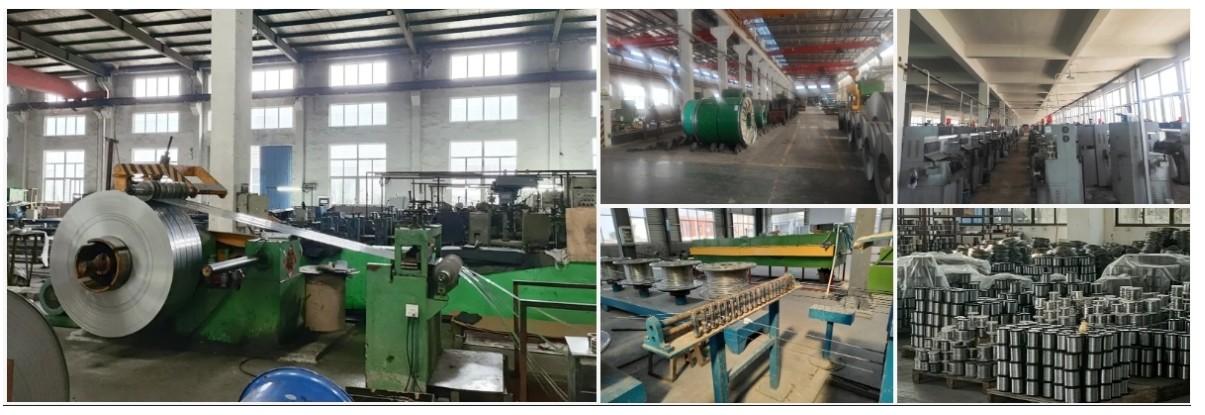
Client Visits
Building Stronger Partnerships
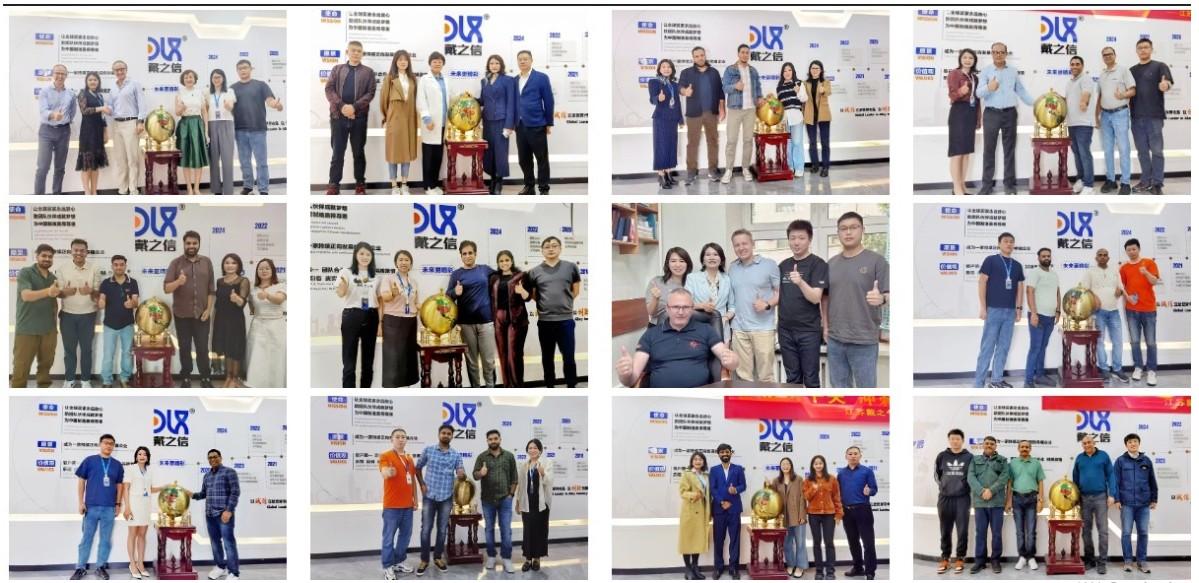
We support all kinds of testing:
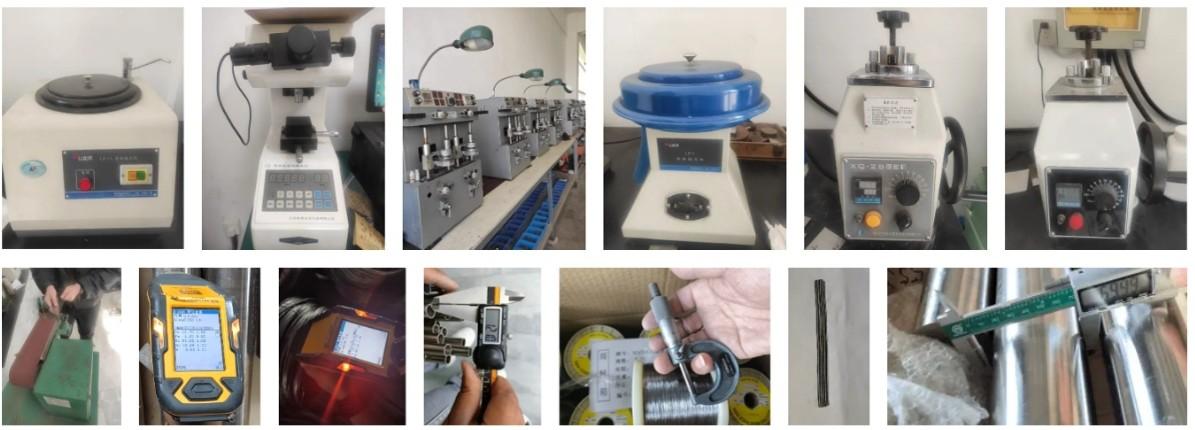

FAQs:
-
Why use titanium plates for heat exchangers?
They offer superior corrosion resistance, high thermal conductivity, and durability in harsh industrial environments. -
Which titanium grades are used in your plates?
Primarily Grade 2 for corrosion resistance and Grade 12 for enhanced strength and temperature resistance. -
Do your plates meet industry standards?
Yes, they comply with ASTM B265 for quality and performance in industrial applications. -
Can your plates be customized?
Absolutely, we provide custom sizes, thicknesses, and surface finishes to match specific heat exchanger designs. -
How do your plates handle high temperatures?
They perform reliably up to 400°C for Grade 2 and 600°C for alloys, ideal for high-heat applications. -
Are your titanium plates recyclable?
Yes, titanium is fully recyclable, supporting sustainable manufacturing practices. -
What industries use your titanium plates?
Chemical processing, oil and gas, power generation, marine, HVAC, renewables, food, and pharmaceuticals. -
How do you ensure plate quality?
We use precision rolling, vacuum arc melting, and rigorous testing to meet ASTM standards and ensure defect-free plates.

